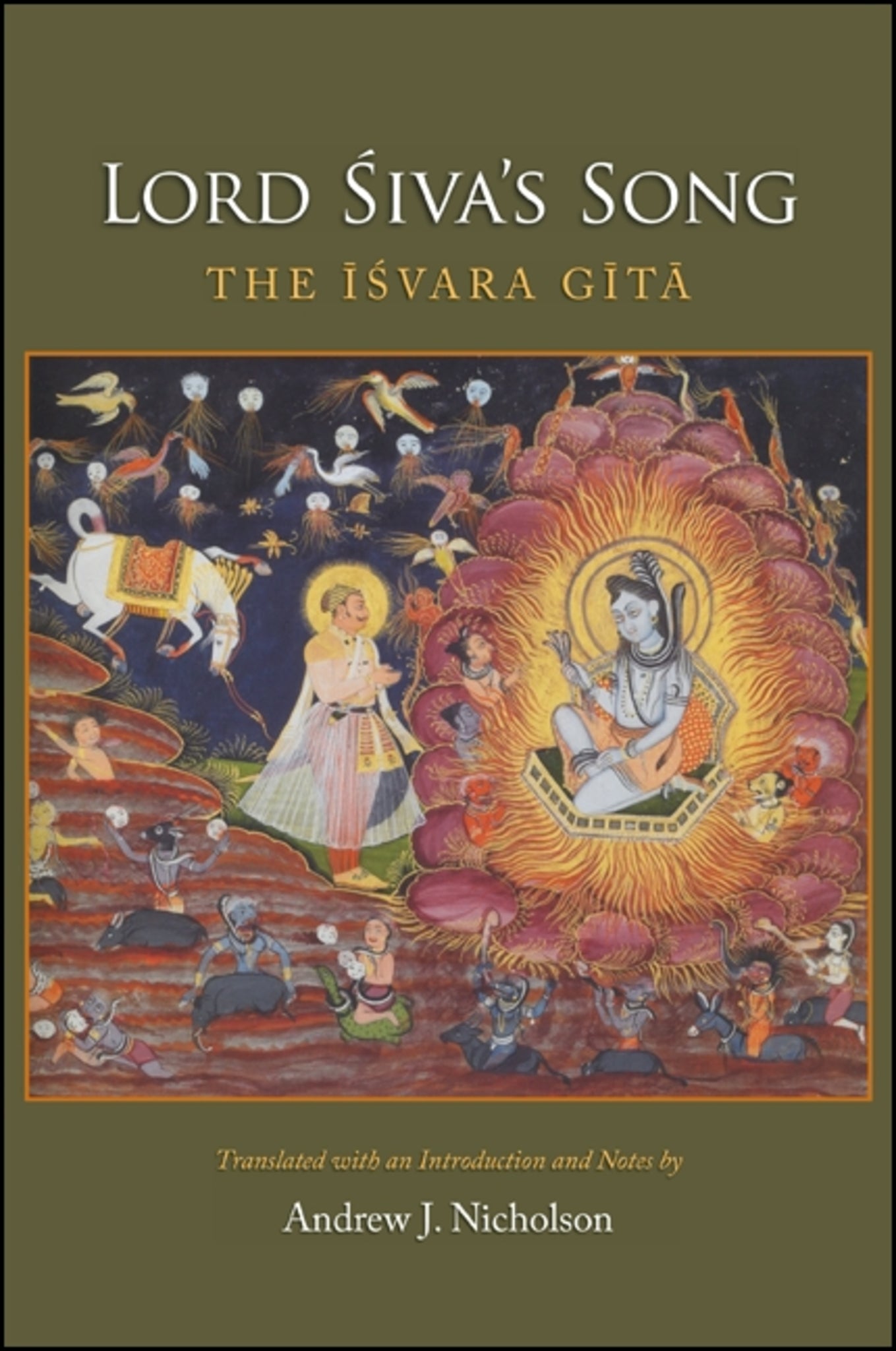We're sorry. An error has occurred
Please cancel or retry.
Lord Śiva's Song

Some error occured while loading the Quick View. Please close the Quick View and try reloading the page.
Couldn't load pickup availability
- Format:
-
01 April 2014

A translation of the Īśvara Gītā, a parallel text to the Bhagavad Gītā that promotes religious inclusion.
While the Bhagavad Gītā is an acknowledged treasure of world spiritual literature, few people know a parallel text, theĪśvara Gītā. This lesser-known work is also dedicated to a god, but in this case it is Śiva, rather than Kṛṣṇa, who is depicted as the omniscient creator of the world. Andrew J. Nicholson's Lord Śiva's Song makes this text available in English in an accessible new translation. A work of both poetry and philosophy, the Īśvara Gītā builds on the insights of Patañjali's Yoga Sūtra and foreshadows later developments in tantric yoga. It deals with the pluralistic religious environment of early medieval India through an exploration of the relationship between the gods Śiva and Viṣṇu. The work condemns sectarianism and violence and provides a strategy for accommodating conflicting religious claims in its own day and in our own.


"…an important work … sure to be accessible to many interested yogis today." — San Francisco Book Review
"This is an excellent introduction to, and a sound scholarly translation of, a foundational text. Andrew J. Nicholson is a first-rate scholar." — Andrew O. Fort, author of Jīvanmukti in Transformation: Embodied Liberation in Advaita and Neo-Vedanta
Acknowledgments
Introduction
Translation
1. The Arrival of the Gods
2. The Changeless Self
3. The Unmanifest Lord
4. The God of Gods
5. The Lord’s Dance
6. The Glory of Lord Śiva
7. The Master of Beasts
8. The Hidden Lord
9. Brahman’s Powers
10. Brahman and the Lord
11. The Highest Yoga
Commentarial Notes
Sanskrit Text
List of Concordances
Glossary of Sanskrit Names and Terms
Bibliography



